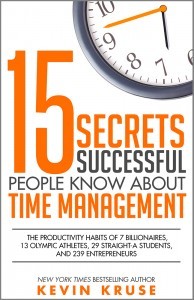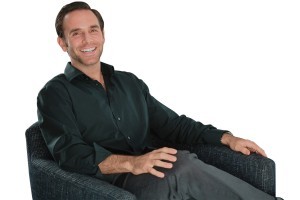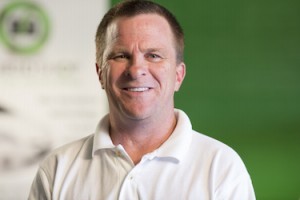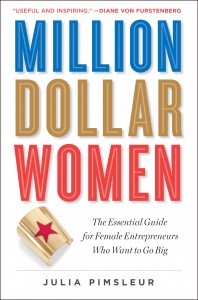Beth Buelow's Blog, page 9
November 4, 2015
Ep95: Ego, Success, and the Book Launch
Note: The following is a blog/podcast hybrid post. Instead of show notes, you get the entire script! Read or listen, it’s up to you.

It’s finally here!!
Welcome to Episode 95 of The Introvert Entrepreneur Podcast. I’m Beth Buelow. This is a special podcast episode that’s also a blogcast, in recognition of this week’s launch of my new book, The Introvert Entrepreneur: Amplify Your Strengths and Create Success on Your Own Terms. What does it mean that it’s also a blogcast? It means that you can find the complete transcript of the audio on my blog at theintrovertentrepreneur.com (in fact, right here!).
I’ve known for a while that I wanted to do a special podcast during book launch week, but what I haven’t known until today is what I wanted to say about the book. I’ve hemmed and hawed about it for weeks now, wondering what would be most interesting to share. I thought about sharing highlights from the book, but you can easily access that information online. I also considered talking about the journey from idea to publication, but I’d rather save that for a future post. Then there’s the stuff about self-promotion and being visible and judged; again, more fodder for a future post.
Finally I decided that I wanted to talk about the very introverted part of publishing a book: the introspection that it forces, my feelings about putting it out there, and clarifying my intentions and defining success.
In the end, it all comes down to confronting my relationship with vulnerability and ego… So that’s where I’m going to go, and my hope is that you can relate to what I share and find something useful to apply to your own life and work.
After all, I know my journey and feelings are not unique. You might have published a book, released a new product, launched a new service or submitted your art for a juried show… it doesn’t really matter what you’re putting out there. The fact is that putting something new out there that reflects even just a tiny piece of your private self will push every button you have. It’s been useful for me to unpack and look closely at those feelings. Don’t worry, this won’t sound like a very public therapy session. But I am going to be real with you, and it’s in service to us learning together.
I Believe My Own Hype…
Since the summer of 2014, when I knew that the book was going to be a reality, I’ve been wrestling with a range of questions about identity and ego. In the weeks leading up to publication, my reflection boiled down to one particular question: How do you handle being who you are?
We all play multiple roles and claim a range of identities: husband, wife, partner, friend, mother, father, employee, entrepreneur, sister, brother, introvert, extrovert, public, private, artist, coach, teacher, mentor… the list goes on and on.
Most of the time, we assume those roles and identities naturally, without thinking too much about it. It is what it is. We try to feel competent at the very least. We strive for excellence, and at our highest moments, we might even feel exceptional.
It’s those moments that I’ve been reflecting deeply on recently: that spectrum between competent and exceptional. Often, we aren’t the ones to make those judgments. Others make them for us. They tell us that we or what we’re doing (the role we’re playing) is OK, or great, or fantastic. And we don’t always know how to take that feedback.
Especially when it’s “what you’re doing is fantastic!”
Or maybe that’s just me. I am noticing the more that someone gushes, the more I shut down. “Gushing” can simply mean, “you’re doing great work.” It’s not even over-the-top. But yet I half-accept, half-dismiss the feedback. It’s a bit uncomfortable. That half-dismissal could be perceived as false humility, which is so far from the truth.
That’s why when I heard someone say recently that a turning point for her in her business was that “I started to believe my own hype,” I was really knocked for a loop.
The statement itself didn’t resonate with me; in fact, it repelled me a bit. But her explanation made complete sense. She was starting to step fully into her true gifts and presence. She was accepting the acknowledgement of others that she was doing great work and offering something of value. When someone reflected that back to her with enthusiasm, she’d decided to accept the gift.
I thought, I gotta get me some of that!
That’s the truth in experiences like that: the thing that repels us also has something to teach us.
…Or I Am Nothing.
One of the reasons it knocked me back was because I was still sitting with a powerful image I’d seen a few days before. It was shared in a tweet from actor Jim Carrey. If you didn’t know it was him in the picture, you wouldn’t recognize him.
It was a simple black and white photo, and at the top it said “I am nothing.” At the bottom, it continued, “What a relief.”
Grand Central, NYC. ;^} (photo by Cathriona White) pic.twitter.com/N8QbQQDFLu
— Jim Carrey (@JimCarrey) September 16, 2015
Think about that. “I am nothing. What a relief.”
I can scarcely imagine anything more opposite from “I started to believe my own hype.”
Those contrasting thoughts have been bouncing around in my head for weeks and weeks.
I’m a rock star. I am nothing.
As a coach, I always look for the both/and, rather than the either/or. Is it possible to be both a rock star and nothing?
I think it is.
I’ve thought about how I would answer that question about turning points, and for me, I hope it would sound like this: “I learned to trust myself and accept the ups and downs without getting too attached to either state.”
My ups – my “hype” moments – don’t define me.
My downs – insecurities and losses – don’t define me.
I want to be able to celebrate all of the good while still knowing it’s fleeting, cumulative, and resists being possessed.
By being able to sit in that both/and, “I’m a rock star/I am nothing” space, it’s possible to be vulnerable but release fear.
Remember: It’s Not About You!
I’ve only just begun to understand how that could be possible. Once you start reflecting on these topics, it seems like the universe starts putting message after message out there for you to hear, often in unlikely places. Or at least, I start reading a secret message into everything. It might be written on the fortune I pull out of a fortune cookie, or the paper tab on my Good Earth tea bag, or something a character says in my favorite tv show. It’s just like when you buy a red car, and then it seems like suddenly, every other car you see is red. Your heightened awareness allows you to see and hear things you might not have noticed before.
And this is where ego and vulnerability intersect and offer a way out. This is how I’ve been able to experience the launching of my book as less pressure and more joyful. Because writing and having a book published is a mixed emotional bag. As I mentioned in the beginning, it’s exciting. And, it’s terrifying. But I’m closer to excited than terrified, and here’s why:
I’ve been reading a book called Spiritual Defiance by Robin Meyers. (Stay with me here, I’m not going to talk religion, that’s not what this is about. It’s about a single sentence I read that has completely shifted my perspective about ego.) In the first chapter, he talks about the role of ego in holding back the growth of the church. But I read it as the role of ego in holding back curiosity, creativity, adventure, and fully sharing one’s talents and message.
You see, the ego is a necessary part of every person. It’s what differentiates us, and it moves us to action because we want to leave our mark and make a difference. We can have a healthy or unhealthy relationship to ego. It’s often demonized because our unexamined relationship with it usually leads to it being an unhealthy relationship.
Meyers puts it this way; he wrote, “We should not be asking at the end of our [work], “How did I do?” Rather, we should ask, “Did anything happen?”
Let’s read that one more time:
“We should not be asking at the end of our [work], “How did I do?”
Rather, we should ask, “Did anything happen?”
That simple statement blew me away. It crystallized the difference between what an unhealthy and healthy ego sounds like. I thought about how perfectly it described my work with clients – coaching is not a performance, it’s a catalyst. It’s not about how well I coached my clients, if I’ve covered all of my core competencies and asked powerful questions; it’s about whether anything shifted for them. I’ve always known that, but reading Meyer’s statement was a succinct and powerful reminder that IT’S NOT ABOUT ME.
The same is true for my book. When you read it (and I hope you will), I’m not looking for feedback on how I did. I want to know, did anything happen? Did something change, even just a teeny tiny bit? Do you know something new about yourself or your business that you didn’t know before you picked up the book? And more importantly, did you put that new knowledge into action? Did anything happen?
The Finite and Infinite Nature of Success
And that brings me to the final piece, about how I define success. It’s so tempting to measure it in terms of sales, likes, reviews, follows, shares, comments, tweets, plus ones, and every other metric we have at our disposal with just the click of a mouse. And of course, you’d be hard pressed to find an author who didn’t say that the goal was to be a New York Times Best-Selling Author. (At first, that was my goal, I’ll just put that out there right now!) Those metrics are important, and the goal still worthy, but it’s oh-so easy to become obsessed with the numbers and allow them to dictate how we feel about our work and define success.
There are also the endless articles about promotional strategies you “should” be doing to promote your book. The more I read them, the more I realized I had the time, energy, and resources to only do a very small percentage of those strategies. It’s hard to look at all of that information and not focus on what I didn’t do, rather than what I did accomplish.
So in my heart and mind, I know all of the numbers and busy-ness are only a small fraction of what it means to be successful. Therefore, my new, simple measure of success is this: did anything happen? Was there a cosmic shift, large or small, that gave someone confidence, affirmed who they were, opened the door to new opportunities, or supported someone in feeling less fear and more courage?
I can’t make those things happen. Not even the book can make those things happen. Only you, reading and absorbing and acting, can make those things happen. It’s your choice, and it’s not up to me.
While I can share all of this now and sound pretty calm about it, it’s been a hard journey getting here. I’ve suffered from impostor syndrome, staggering insecurities, and fear of failure… you know, all the usual suspects. And I’m not immune to those going forward. I have yet to discover a vaccine that will inoculate any of us against those feelings. But I do take comfort in naming and claiming them. I feel stronger because I’ve acknowledged that I’m human. And when I suffer from a recurrence of any of those feelings, I have more tricks up my sleeve to help me move through them.

To Infinity… and Beyond!
Speaking of which, here’s the trick I put up my sleeve on book launch day. It’s an infinity symbol temporary tattoo that I put on my right arm. It takes me back to the first days of this podcast, before it was really a podcast. I had posted my first few episodes, and the woman who was posting them let me know that in the first few weeks, I’d received 8 downloads. I’d spent hours on those episodes, and 8 wasn’t very many. So I decided to turn that 8 on its side and make it infinity: 8 to ∞. It reminds me that everything starts with zero – or eight! – and grows from there. The symbol reminds me that there is infinite possibility in the world, and there is an infinite universe that holds each of us as a tiny, precious speck exploding with potential. We are finite creatures in an infinite spectrum of life.
We are everything, and we are nothing.
For Your Consideration
In closing, I invite you to consider three simple questions, because for all of my reflecting, I still don’t have answers, only more questions. Take some time to think about the following:
How do I define success?
What’s my relationship to my ego, and how could that be holding me back?
How can I be both a rock star and nothing when it comes to what I’m sharing with the world?
I leave you with a quote from Rainer Maria Rilke: “Make your ego porous. Will is of little importance, complaining is nothing, fame is nothing. Openness, patience, receptivity, solitude is everything.”
If you’d like to get your own copy of The Introvert Entrepreneur, visit online retailers such as Amazon, Barnes & Noble, Powell’s, and others, or check your local bookstore. It’s available in paperback, ebook, enhanced ebook, and audio versions. If you read it and want to tell others what you learned, what happened, please take a moment to leave a review online. There will also be a companion program, called the Amplify Your Strengths Online Learning Lab, that goes with the book and supports you in moving to action on what you learned; more about that in the coming weeks.
Thanks so much for listening (and reading!) today. It’s been great sharing this time with you, and I hope you’ll join me for future podcasts and blogcasts! This is Beth Buelow of The Introvert Entrepreneur, and until we meet again, remember that success is an inside job.
The post Ep95: Ego, Success, and the Book Launch appeared first on The Introvert Entrepreneur.
October 28, 2015
Ep94: Jennifer Kahnweiler Reveals The Genius of Opposites
Ep94 Show Notes
 About Jennifer Kahnweiler
About Jennifer KahnweilerJennifer B. Kahnweiler, Ph.D., Certified Speaking Professional, is a best-selling author and global keynote speaker who is known as the “Champion of Introverts.” In addition to her latest book, The Genius of Opposites, she has written two best-selling books about introverts (Quiet Influence and The Introverted Leader), which have been translated into 14 languages. Jennifer has worked with hundreds of organizations including GE, CNN, NASA and the CDC. She is a highly regarded faculty member of the American Management Association and has been featured in Forbes, Time Magazine, Fortune and The Wall Street Journal. Jennifer’s commitment to introverts started the day she married one. Since then, she’s helped organizations value the introverts on their teams and coached introverted individuals to step confidently into leadership positions.
Key Conversation Points
Encouraging introverts and extroverts to work together in a healthy manner
Being confident in your strengths as an introvert
Assessing yourself and others to make the best decisions
Recognizing how powerful opposite pairings can be
Understanding the role of passion in your personal and professional life
Considering “the walking meeting” as a means of easing tension
Acknowledging that it is okay to address conflict
Setting up battles for win-win success
Speaking your truth
Detailed Conversation Highlights
Jennifer Kahnweiler considered herself a “flaming extrovert”, but focused on introverts in her career. She became saddened seeing talented introverts constantly passed over for promotions and opportunities. Her latest book has advice on how extroverts can achieve professional harmony with introverts and vice versa. She also highlights the skills that introverts bring to the table, such as preparation. For tense opposite partnerships, or even ones that just need a bit of guidance, she has created a quiz to help opposite pairs identify key issues. It is particularly valuable to metric-minded individuals. The quiz also serves to take some of the burden off of the introvert, who may be wrestling with how to communicate their concerns.
Introverts find many times that their workplace culture is difficult to navigate, due to their strengths being encouraged during hiring, but ignored in the job. Jennifer’s solutions come from the observations that she used to write her books. She mentions how the most successful pairs make a point to get along, share the credit, and complement each other. She mentions her five main concepts for getting the best out of an opposite partnership. She also mentions the importance that conflict has in an opposite pairing and how it can cause it to thrive. Being too polite can destroy the opposite pairing dynamic that’s so important. Jennifer’s body of work proves that you can thrive in an opposite pairing by staying true to who you are.
Resources Mentioned in the Podcast*
The Genius of Opposites: How Introverts and Extroverts Achieve Extraordinary Results Together – Jennifer Kahnweiler
Quiet Influence – Jennifer Kahnweiler
The Introverted Leader – Jennifer Kahnweiler
Shaping Your HR Role – William and Jennifer Kahnweiler
JenniferKahnweiler.com
Jennifer’s Introvert Island Book Selections*
“The Summer Day” from New and Selected Poems 1992– Mary Oliver (scroll down for the poem)
Purity – Johnathan Franzen
A blank journal
Sharing is Caring!
Introverts and Extroverts can work in harmony! #Podcast via @IntrovertCoach @JennKahnweiler |  Tweet This
Tweet This
Without conflict, we don’t have progress. #Podcast via @IntrovertCoach @JennKahnweiler |  Tweet This
Tweet This
Learn how a meeting out in the sun can boost your #business. #Podcast via @IntrovertCoach @JennKahnweiler |  Tweet This
Tweet This
There are many extroverts that appreciate what introverts bring to the table #Podcast via @IntrovertCoach @JennKahnweiler |  Tweet This
Tweet This
If You Enjoyed the Show…
You can subscribe to The Introvert Entrepreneur Podcast on on iTunes or Stitcher. Please leave an honest review on iTunes or Stitcher. If you want to hear more news from The Introvert Entrepreneur including and beyond the podcasts, join the enewsletter mailing list.
*Amazon links are affiliate, meaning I receive a few pennies (at when you purchase through my link. You get some retail therapy, I get additional resources to keep bringing you great podcasts. Win-Win!!
The Summer Day
by Mary Oliver
Who made the world?
Who made the swan, and the black bear?
Who made the grasshopper?
This grasshopper, I mean-
the one who has flung herself out of the grass,
the one who is eating sugar out of my hand,
who is moving her jaws back and forth instead of up and down-
who is gazing around with her enormous and complicated eyes.
Now she lifts her pale forearms and thoroughly washes her face.
Now she snaps her wings open, and floats away.
I don’t know exactly what a prayer is.
I do know how to pay attention, how to fall down
into the grass, how to kneel in the grass,
how to be idle and blessed, how to stroll through the fields,
which is what I have been doing all day.
Tell me, what else should I have done?
Doesn’t everything die at last, and too soon?
Tell me, what is it you plan to do
With your one wild and precious life?
The post Ep94: Jennifer Kahnweiler Reveals The Genius of Opposites appeared first on The Introvert Entrepreneur.
October 21, 2015
Ep93: Kevin Kruse and The 15 Secrets Successful People Know About Time Management
Ep93 Show Notes
About Kevin Kruse
 Kevin Kruse is a New York Times bestselling author, an Inc 500 startup founder, and his newest book, “15 Secrets Successful People Know About Time Management” is based on groundbreaking research into the habits of Olympic athletes, straight-A students, over 200 entrepreneurs and 7 billionaires, including Mark Cuban.
Kevin Kruse is a New York Times bestselling author, an Inc 500 startup founder, and his newest book, “15 Secrets Successful People Know About Time Management” is based on groundbreaking research into the habits of Olympic athletes, straight-A students, over 200 entrepreneurs and 7 billionaires, including Mark Cuban.
Key Conversation Points
Realizing how introverts can be perceived
Learning to play to your strengths
Taking a relationship and rapport-oriented approach
Educating people instead of just selling to them
Discovering your time management style
Getting rid of your to-do list
Protecting your time
Understanding the “Power of No”
Appreciating the right mindset
Taking care of your body along with your mind
Detailed Conversation Highlights
Kevin Kruse considers himself a “massive introvert” and has experienced some of the pitfalls related to the perceptions of others. His colleagues regularly considered him anti-social, or even worse, came to the conclusion that he disliked them. It is noted that introversion can be seen as a string of negative social perceptions and it is as important to be aware of your impressions you make as an introvert as it is for others to make fewer assumptions.
With regard to time management and productivity, there’s relatively minimal research. However, thanks to the research that does exist, we have the most important aspects to consider — “what” and “how.”
Kruse decided to expand on this information and gather anecdotal information from high achievers on what gives them the ability to accomplish their goals in a fraction of the time of the average person. This interest became his book and the time management style assessment on his site. He learned that these high achievers maintain balance so they can preserve their energy for their most important tasks. Giving your time priority is of the utmost importance and an important component is to learn to reject others’ request for time in such a way that keeps them from feeling slighted. Taking the proper time management and productivity measures can prevent burn-out, allow you to maintain the priorities you desire in your life, and ease negative thoughts related to guilt or stress.
Taking advantage of these psychological tips is important, but they mean very little if you don’t take care of your physical side as well. It is important to make sure that you’re properly fueled to accomplish your goals and that starts with proper eating habits. It is also important to get the rest you need.
Resources Mentioned in the Podcast
15 Secrets Successful People Know About Time Management — Kevin Kruse
Kevin Kruse’s time management style assessment
Kevin on: Facebook | Twitter | LinkedIn | YouTube | Pinterest
Kevin’s Introvert Island Book Selections
School of Greatness — Lewis Howes
Rising Strong — Brené Brown
The Introvert Entrepreneur – Beth Buelow
Download this episode (right click and save)
Sharing is Caring!
What’s the best way for extreme #introverts to approach sales? #Podcast via @IntrovertCoach @Kruse
The “disease to please” can compromise your #business! #Podcast via @IntrovertCoach @Kruse
What is an #introvert and high achiever’s greatest asset? #Podcast via @IntrovertCoach @Kruse
You should toss your to-do list out the window. We discuss why. #Podcast via @IntrovertCoach @Kruse
The mindset of high achievers may not be what you think. #Podcast via @IntrovertCoach @Kruse
If You Enjoyed the Show
You can subscribe to The Introvert Entrepreneur Podcast on on iTunes or Stitcher. Please leave an honest review on iTunes or Stitcher. If you want to hear more news from The Introvert Entrepreneur including and beyond the podcasts, join the enewsletter mailing list.
*Amazon links are affiliate, meaning I receive a few pennies when you purchase through my link. You get some retail therapy, I get additional resources to keep bringing you great podcasts. Win-Win!!
The post Ep93: Kevin Kruse and The 15 Secrets Successful People Know About Time Management appeared first on The Introvert Entrepreneur.
October 14, 2015
Ep92: David Nihill Teaches Us How to Use the Power of Humor
Ep92 Show Notes
About David Nihill
 David is the Founder of FunnyBizz, a community and conference series where business meets humor to abolish boring content. He is also the author of the best-selling book “Do You Talk Funny?” He has been featured in Inc., Lifehacker, The Huffington Post, Fast Company, Entrepreneur, and Forbes.
David is the Founder of FunnyBizz, a community and conference series where business meets humor to abolish boring content. He is also the author of the best-selling book “Do You Talk Funny?” He has been featured in Inc., Lifehacker, The Huffington Post, Fast Company, Entrepreneur, and Forbes.
Key Conversation Points
Incorporating humor
Creating humor with personal anecdotes
Understanding how best to communicate anecdotes for humorous effect
Embracing your natural humor
Being relatable and making your presentations relatable
Turning a traumatic experience into a hilarious one
Observing your world and the importance of taking notes
Taking no more than three sentences to get to your key point
Exploring the role of taboo in comedy
Considering how the lack of your subject matter would impact people’s lives
Getting better at public speaking
Detailed Conversation Highlights
David starts off recalling a scenario he observed a day before the interview and already starts to practice what he preaches about sharing stories. He considers himself an ambivert, as his energy changes drastically based on his situation. With the focus turned to David’s expertise, the point is made that although performers such as actors and comedians focus on entertaining and connecting with others, most are strong introverts. David attributes this dichotomy to the fact that preparation and other behind-the-scenes activities are very quiet and personal exercises. Stand-up comedy in particular is a very solitary and a cutthroat industry where the focus is putting your best self in front of a crowd. Collaboration with others offers a less substantial benefit to your career compared to other types of performance and even other types of comedy such as improv.
Personal anecdotes are one of the easiest ways to segueway into humor, as it is met with the least resistance and is the most natural. Highlighting a simplified version of your subject matter can create interest easily. Anecdotes can come from your experience as well as observation – just remember to record what you’ve witnessed. Most people state that they’ll remember everything including the details, but they’re typically wrong and the opportunity is lost. Brevity is important in this era, as technology has evolved and attention spans haven’t. David filled a niche, showing people how to use humor, instead of just suggesting it for public speaking.
Resources Mentioned in the Podcast
Do You Talk Funny? 7 Comedy Habits to Become a Better (and Funnier) Public Speaker
FunnyBizz.co
Judy Carter’s Amazon.com page
Tig Notaro
Maysoon Zayid TED Talk
Mark Pollock TEDx Talk
Ken Robinson TED Talk
Billy Connolly
Bill Cosby
Download this episode (right click and save)
David’s Introvert Island Book Selections
The Man Who Tried to Save the World: The Dangerous Life and Mysterious Disappearance of an American Hero – Scott Anderson
Catch 22 – Joseph Heller
One Hundred Years of Solitude – Gabriel García Márquez/Family Photo Album
Tweet: Sharing is Caring!
Humor in your #business presentation could earn you more money! #Podcast via @IntrovertCoach @funnybizzsf
Learn how to add humor to your #business presentations. #Podcast via @IntrovertCoach @funnybizzsf
David Nihill tells us 3 steps to slay your presentation. #Podcast via @IntrovertCoach @funnybizzsf
Your social media friends can make you a funnier person. #Podcast via @IntrovertCoach @funnybizzsf
Every introverted #entrepreneur should embrace brevity. #Podcast via @IntrovertCoach @funnybizzsf
If You Enjoyed the Show
You can subscribe to The Introvert Entrepreneur Podcast on on iTunes or Stitcher. Please leave an honest review on iTunes or Stitcher. If you want to hear more news from The Introvert Entrepreneur including and beyond the podcasts, join the enewsletter mailing list.
*Amazon links are affiliate, meaning I receive a few pennies when you purchase through my link. You get some retail therapy, I get additional resources to keep bringing you great podcasts. Win-Win!!
The post Ep92: David Nihill Teaches Us How to Use the Power of Humor appeared first on The Introvert Entrepreneur.
October 7, 2015
Ep91: Julia Pimsleur on Going Big Instead of Going Broke
About Julia Pimsleur
 Julia Pimsleur is CEO and Founder of Little Pim, the leading early language teaching program for children in the U.S. and author of “Million Dollar Women: The Essential Guide for Female Entrepreneurs Who Want to Go Big” (Simon & Schuster, October 2015). Little Pim has won 25 awards for its proprietary Entertainment Immersion Method® and its products are sold in 22 countries.
Julia Pimsleur is CEO and Founder of Little Pim, the leading early language teaching program for children in the U.S. and author of “Million Dollar Women: The Essential Guide for Female Entrepreneurs Who Want to Go Big” (Simon & Schuster, October 2015). Little Pim has won 25 awards for its proprietary Entertainment Immersion Method® and its products are sold in 22 countries.
Little Pim is one of the few women-run businesses backed by venture capital in the country, and after raising millions for her own company, Pimsleur created the “Double Digit Academy”, an online fundraising bootcamp to help other women do the same. Pimsleur has blogged about entrepreneurship for Forbes.com since 2012; has been featured on Today, NBC Weekend Today, and Fox News; and her company has been highlighted in Business Week, The Wall Street Journal, and The New York Times. She won the 2013 Smart CEO Brava! Award for women entrepreneurs.
Key Conversation Points
Appreciating complementary energies
Understanding the best ways for you to recharge
Avoiding general and entrepreneurial “burnout”
Realizing that the same course of action might not work forever
Getting out of your comfort zone
Raising venture capital
Becoming “conversational” in fundraising language
Understanding the “three magic ingredients”
Streamlining your search with internet research
“Going Big”
Understanding the differences between how women and men tend to approach business
Recognizing the personal-professional dynamic and how it affects your business
Letting go
Delegating tasks to focus on what you are best at doing
Detailed Conversation Highlights
Julia Pimsleur is an extrovert and successful entrepreneur that took her father’s language learning approach and spun it into a profitable platform aimed at young children. She originally believed in some of the stereotypical introvert behaviors, but after gaining a greater understanding, she actively seeks to work around them. Pimsleur faced many challenges in getting her company to flourish, and instead of working harder focused on working smarter with some advice from her successful cousin. Venture capital is an area in which women entrepreneurs are grossly underrepresented. Pimsleur looked into venture capital as a means to save her business, which worked beautifully.
Being one of the few venture-backed women, Pimsleur acknowledged a need and began to coach other women entrepreneurs in pursuing venture capital as well. Her classes have lead fifty women to raise over ten million dollars for their businesses and eventually partnered with Morgan Stanley. Following that success, Pimsleur decided to write a book in order to help more women use venture capital to propel their companies. Crowd funding is a trending and novel means for entrepreneurs to acquire money for their ideas, but Pimsleur warns that the support you receive relies heavily on your own network. Navigating the venture capital scene and language doesn’t require fluency, but it does require that you are conversational.
Entrepreneurs of all personality types can struggle with the idea of asking others for money, but the networking aspect of it can pose additional challenges for entrepreneurs. It is highly recommended to “do your homework” online and target angel investors that have a higher likelihood of backing you. It is also important to pursue your own definition of “Going Big” and to realize that there are a lot of talented people out there that can take most of the burden off of you. Wearing many hats may end up costing you in the long run, and depending on the situation, you might be helping another entrepreneur by utilizing their skill set.
Resources Mentioned in the Podcast
The Introvert Entrepreneur: Amplify Your Strengths and Create Success on Your Own Terms — Beth L. Buelow
Million Dollar Women: The Essential Guide for Female Entrepreneurs that Want to Go Big — Julia Pimsleur
The Wonderful Wizard of Oz — L. Frank Baum
AngelList
JuliaPimsleur.com
Julia on Facebook
Julia on Twitter
Julia on LinkedIn
Download this episode (right click and save)
Andrea’s Introvert Island Book Selections
The Early Bird — Richard Scarry
Chéri — Colette
Daring Greatly: How the Courage to Be Vulnerable Transforms the Way We Live, Love, Parent, and Lead — Brené Brown
Sharing is Caring! (Tweets for you!)
Why your #business life should be a marathon + not a sprint. #Podcast via @IntrovertCoach @JuliaPimsleur
What is most important: Mindset, Skill Set or Network? #Podcast via @IntrovertCoach @JuliaPimsleur
Find out why working hard in your #business can sabotage your success. #Podcast via @IntrovertCoach @JuliaPimsleur
What are the three magic ingredients women need to fund their #business? via @IntrovertCoach @JuliaPimsleur
Only 4-7% of women #entrepreneurs are venture backed. Find out why. #Podcast via @IntrovertCoach @JuliaPimsleur
If You Enjoyed the Show
You can subscribe to The Introvert Entrepreneur Podcast on on iTunes or Stitcher. Please leave an honest review on iTunes or Stitcher. If you want to hear more news from The Introvert Entrepreneur including and beyond the podcasts, join the enewsletter mailing list.
*Amazon links are affiliate, meaning I receive a few pennies when you purchase through my link. You get some retail therapy, I get additional resources to keep bringing you great podcasts. Win-Win!!
The post Ep91: Julia Pimsleur on Going Big Instead of Going Broke appeared first on The Introvert Entrepreneur.
September 30, 2015
Ep90: Geoff Woods Shares How to Find the Perfect Mentor
About Geoff Woods
 Geoff Woods started his journey not as an entrepreneur, but as a medical device salesman. After his company slashed his income by nearly 40%, he started to explore the idea of entrepreneurship and eventually became a salesman by day, entrepreneur by night. Although he appreciated his network, he knew he couldn’t ask for guidance from people that didn’t share his new goals. After hearing the Jim Rohn quote that “you are the average of the 5 people you spend the most time with,” Geoff set out on a mission to surround himself with high level CEOs and entrepreneurs. Fast forward, and he is a now being mentored by many of these heavy hitters. He publishes the real conversations he has with his mentors on in his top business podcast “The Mentee Podcast.”
Geoff Woods started his journey not as an entrepreneur, but as a medical device salesman. After his company slashed his income by nearly 40%, he started to explore the idea of entrepreneurship and eventually became a salesman by day, entrepreneur by night. Although he appreciated his network, he knew he couldn’t ask for guidance from people that didn’t share his new goals. After hearing the Jim Rohn quote that “you are the average of the 5 people you spend the most time with,” Geoff set out on a mission to surround himself with high level CEOs and entrepreneurs. Fast forward, and he is a now being mentored by many of these heavy hitters. He publishes the real conversations he has with his mentors on in his top business podcast “The Mentee Podcast.”
Key Conversation Points
Defining “Mentor”
Recognizing the difference between a “mentor” and a “coach”
Knowing what to look for in a mentor
Asking the right questions in order to choose a mentor
Learning how to network the right way
Talking openly about your goals with others
Adding value to others
Detailed Conversation Highlights
Geoff Woods is a strong extrovert that became aware of his introverted side after an assessment. At that point, he acknowledged that even with his extrovert dominance that he needed to occasionally spend some time by himself. He came into entrepreneurship after hugely impactful back-to-back events occurred in his life within the same week: his dear friend suffered a stroke, and his company slashed his future income by 40%. This prompted him to realize the importance of securing a legacy that was dependable for his and his family’s future. He decided to go into work for himself, but his network at the time lacked people who “made it big” in business. He was inspired by the Jim Rohn quote that “you are the average of the 5 people you spend the most time with”.
Running with that advice, he sought to network with successful entrepreneurs and corporate executives. This helped him to realize the power of mentors, and how essential they are to success. Geoff used his bold and inquisitive nature to form two important questions that can aid anyone in finding the perfect mentor, and also the best way to establish new connections. Furthermore, he emphasizes the importance of getting the most out of the network you already have. He managed to excel by interacting with successful entrepreneurs, and records the conversations he has with them. These recordings make up his podcast, “The Mentee.” He stresses the importance of paying it forward to others that need help and identifies it as a quality that many successful entrepreneurs possess.
Resources Mentioned in the Podcast
Connect with 7 Amazing People in 7 Days or Less (findthebestmentors.com)
The Power of Vulnerability: Teachings on Authenticity, Connection and Courage – Brené Brown
The Mentee Podcast
Twitter: @geoffwoods
Geoff’s special 15 minute consultation for podcast listeners
Download this episode (right click and save)
Geoff’s Introvert Island Book Selections
Cash Flow Quandrant – Robert Kiyosaki
How to Win Friends and Influence People – Dale Carnegie
Three Feet from Gold: Turn Your Obstacles Into Opportunities – Sharon L. Lechter
Sharing is Caring!
Why you shouldn’t tell your network that “not much” is going on #Podcast via @IntrovertCoach @geoffwoodsPowered By the Tweet This Plugin
 Tweet This
Tweet This#Success lies in vulnerability – find out why! #Podcast via @IntrovertCoach @geoffwoodsPowered By the Tweet This Plugin
 Tweet This
Tweet ThisIt’s not who you know, it’s also who knows you. #Podcast via @IntrovertCoach @geoffwoodsPowered By the Tweet This Plugin
 Tweet This
Tweet ThisThe two questions that can lead you to massive #success. #Podcast via @IntrovertCoach @geoffwoodsPowered By the Tweet This Plugin
 Tweet This
Tweet ThisIf You Enjoyed the Show
You can subscribe to The Introvert Entrepreneur Podcast on on iTunes or Stitcher. Please leave an honest review on iTunes or Stitcher. If you want to hear more news from The Introvert Entrepreneur including and beyond the podcasts, join the enewsletter mailing list.
*Amazon links are affiliate, meaning I receive a few pennies when you purchase through my link. You get some retail therapy, I get additional resources to keep bringing you great podcasts. Win-Win!!
The post Ep90: Geoff Woods Shares How to Find the Perfect Mentor appeared first on The Introvert Entrepreneur.
September 23, 2015
Ep89: Dave Stachowiak of Coaching for Leaders
Ep89 Show Notes
About Dave Stachowiak
 Dave Stachowiak has spent the last eleven years honing his skills at the prestigious Dale Carnegie corporate training and self-improvement firm. He is currently Executive Vice President of Talent Development with Dale Carnegie of Southern Los Angeles. Dave leads training programs for top organizations, and was named by Forbes as one of the 25 Professional Networking Experts to Watch in 2015. He produces and hosts the Coaching for Leaders weekly podcast, as well as the daily Carnegie Coach podcast with the Dale Carnegie organization.
Dave Stachowiak has spent the last eleven years honing his skills at the prestigious Dale Carnegie corporate training and self-improvement firm. He is currently Executive Vice President of Talent Development with Dale Carnegie of Southern Los Angeles. Dave leads training programs for top organizations, and was named by Forbes as one of the 25 Professional Networking Experts to Watch in 2015. He produces and hosts the Coaching for Leaders weekly podcast, as well as the daily Carnegie Coach podcast with the Dale Carnegie organization.
Key Conversation Points
Being honest with yourself and where you fall on the spectrum
Coping with the introvert-extrovert “disconnect”
Giving others the opportunity to honor your differences
Speaking up and making your needs heard
Accomplishing the same tasks in a different fashion
Nurturing the introvert inside
Complementing the extroverts around you
Aligning yourself with meaningful causes
Acknowledging the importance of flexibility
Considering ambiversion
Recognizing that all skills are learnable
Respecting your core and cultivating the opposite
Detailed Conversation Highlights
Since his college days, Dave has been intrigued by and deeply interested in leadership and personal development, which fueled his interest in Myers-Briggs personality typing. A self-proclaimed “geek” on the subject, he tested himself several times over several years, scoring as an ENFJ. He was mostly drawn to the extrovert descriptor in his assessments and considered it an integral part of who he was, especially in his career.
However, that classification didn’t prevent him from feeling out of place at times, or recognizing that strong extroverts had a much easier time excelling in certain areas than he did. He also noticed that those areas didn’t come as naturally to him. He reached his ultimate revelation during an MBTI training exercise. Even though his assessment pointed to the expected ENFJ personality, during the pragmatic exercises created to help people understand preferences and working “style,” he realized that he deep down wasn’t an extrovert at all.
It took Dave a challenging year after the training exercise to finally reconcile with the idea of being an introvert. Not only did he refuse to entertain the notion of being an introvert at that time, but he also held stereotypical misconceptions about introverts – primarily that they don’t interact well with others and are too passive.
Now, instead of shunning the idea of being an introvert, he fully embraces it and unapologetically utilizes his advantages in project management, strategic planning, and follow-up to address his company’s needs. He also realized that Carnegie’s trait list for honing interpersonal skills is split pretty evenly among introverted and extroverted qualities. He also seeks to clear misconceptions about Dale Carnegie, citing that the company’s goal is to help people not only to hone natural skills, but develop ones that don’t come naturally.
Download this episode (right click and save)
Resources Mentioned in the Podcast*
How to Win Friends and Influence People – Dale Carnegie
Not an Introvert, Not an Extrovert? You May Be An Ambivert – Wall Street Journal, Elizabeth Bernstein
Dave Stachowiak’s Podcast – Coaching for Leaders
Goodreads.com Giveaway for “The Introvert Entrepreneur (through 10/2/15)
Deluxe eBook edition of “The Introvert Entrepreneur”
Jeb’s gonna Jeb: Why Bush embraced his introversion (CNN Politics)
Debbie Page Whitlock and Peter Walter
Dave’s Introvert Island Book Selections*
The War of Art: Break Through the Blocks and Win Your Inner Creative Battles – Steven Pressfield
The Grapes of Wrath – John Steinbeck
Working Days: The Journals of The Grapes of Wrath – John Steinbeck
A blank journal to challenge himself to write
Related Podcasts You Might Like
Ep 59: Building an Extroverted Brand, Introvert Style: A Conversation with Tony Hsieh
Ep60: An Introvert-Friendly Approach to Networking with Sandy Jones-Kaminski
Quiet: The Power of Introverts with Susan Cain
Sharing is Caring!
Introversion in #business doesn’t have to feel like a Scarlet “I.” #Podcast via @IntrovertCoach @DaveStachowiakPowered By the Tweet This Plugin
 Tweet This
Tweet ThisYour introversion is an asset, even when working in a sea of extroverts. #Podcast via @IntrovertCoach @DaveStachowiakPowered By the Tweet This Plugin
 Tweet This
Tweet ThisYou don’t need to fast-track through #sales to let your talents shine. #Podcast via @IntrovertCoach @DaveStachowiakPowered By the Tweet This Plugin
 Tweet This
Tweet ThisAre you an introvert who excels at #sales in a different fashion? #Podcast via @IntrovertCoach @DaveStachowiakPowered By the Tweet This Plugin
 Tweet This
Tweet ThisIf You Enjoyed the Show
You can subscribe to The Introvert Entrepreneur Podcast on on iTunes or Stitcher. Please leave an honest review on iTunes or Stitcher. If you want to hear more news from The Introvert Entrepreneur including and beyond the podcasts, join the enewsletter mailing list.
*Amazon links are affiliate, meaning I receive a few pennies when you purchase through my link. You get some retail therapy, I get additional resources to keep bringing you great podcasts. Win-Win!!
The post Ep89: Dave Stachowiak of Coaching for Leaders appeared first on The Introvert Entrepreneur.
September 16, 2015
Ep88: Andrea Lake on Strategic Business Growth
Introverts have incredible opportunities to build successful businesses, and leveraging online resources is one reason those opportunities exist. I’m pleased to welcome Andrea Lake to The Introvert Entrepreneur podcast to share insights that she’s gained as the founder of multiple businesses, all while balancing her introvert and extrovert energies.  Andrea is a serial entrepreneur who has founded 14 companies since she was 18 years old. Her current active companies are StickerJunkie.com, YogaJunkie, and Delinquent Distribution, which owns sales rights to the merchandise for the largest video games in the world, including Minecraft. She’s also the co-founder of Mentor Mojo, which we’re going to learn more about during our conversation. We also learn about her experience as a contestant on Donald Trump’s show “The Apprentice,” including the real reason she was “fired”!
Andrea is a serial entrepreneur who has founded 14 companies since she was 18 years old. Her current active companies are StickerJunkie.com, YogaJunkie, and Delinquent Distribution, which owns sales rights to the merchandise for the largest video games in the world, including Minecraft. She’s also the co-founder of Mentor Mojo, which we’re going to learn more about during our conversation. We also learn about her experience as a contestant on Donald Trump’s show “The Apprentice,” including the real reason she was “fired”!
 This episode is proudly sponsored by 100mustreads.com, provider of business book summaries of some of the bestselling books on the market today. Listen for a special offer during the episode!
This episode is proudly sponsored by 100mustreads.com, provider of business book summaries of some of the bestselling books on the market today. Listen for a special offer during the episode!
Connect with Andrea
Download this episode (right click and save)
The post Ep88: Andrea Lake on Strategic Business Growth appeared first on The Introvert Entrepreneur.
September 14, 2015
The Danger of a Single Introvert-Extrovert Story
 A few weeks ago, I was leading a workshop about communication between introverts and extroverts. The participants had broken up into smaller groups to do an exercise. Then it was time to share what they’d noticed. One of the groups in the front of the room went first. In deciding who was going to be their spokesperson, one man (an introvert) nudged one of the women, saying to her, “You share, you’re the extrovert.”
A few weeks ago, I was leading a workshop about communication between introverts and extroverts. The participants had broken up into smaller groups to do an exercise. Then it was time to share what they’d noticed. One of the groups in the front of the room went first. In deciding who was going to be their spokesperson, one man (an introvert) nudged one of the women, saying to her, “You share, you’re the extrovert.”
What if she hadn’t taken notes? What if she was feeling quiet that day? What if she didn’t like being put on the spot?
It’s the danger of a single story.
The single story many introverts have about extroverts is that they’re always ready, willing and able to talk. To be put on the spot. To carry the conversation, be super social, or be the life of the party. And it’s true: we all know “that” extrovert who fits all of the stereotypes, with whom we can never get a word in edgewise and who sums up everything that frustrates or mystifies us.
But it goes the other way, too, doesn’t it? The single story many extroverts have about introverts is a familiar one: we’re quiet, shy, aloof, bookish, and shun the spotlight. We’re deep thinkers, smart or geeky, and will always choose solitude over socializing.
Single stories are easy. They allow us to put labels on people, giving us a shorthand, broad brushstroke way of making the complex simple. Whether we’re aware of it or not, those single stories are often stereotypes that we’ve never challenged. Or they might have been born out of our first encounter with someone, and we’ve carried along the assumption that that one person represents all people who share what we see as that person’s defining trait.
This happens with race, religion, sexual orientation, age, gender, ethnicity, and yes, even with personality types. Think of all of the wonderful people you might miss connecting with because you’ve adopted a single story about them.
In speaking of her awareness of the power of single stories in her own life, novelist Chimamanda Adichie shares this in her fantastic TED Talk (see below for full video):
“All of these stories make me who I am. But to insist on only these negative stories is to flatten my experience and to overlook the many other stories that formed me. The single story creates stereotypes, and the problem with stereotypes is not that they are untrue, but that they are incomplete. They make one story become the only story.”
This echoes something I’ve often shared in my presentations: the stereotypes about introverts are there because there’s often a grain of truth in them. But often the reason they’re true is not what people expect. And they certainly aren’t the whole story.
Perhaps this is the reason some people resist or dismiss certain descriptors, because they fear it will put them into the teeny tiny box of someone else’s single story about that descriptor. They reject the label, which is certainly their right. It’s helpful to examine, though, if rejecting that label serves you. In my mind, labels inform, not define. They add another layer to my story, because no one else in the world shares the same combination of labels that I do. They unlock another tiny piece of the mystery that is me. I’m an introvert, and claiming that means I’ve accepted that I have a particular energy that needs to be honored if I’m going to be my best self. That’s only one story of the many stories that make me, me. If you want to put me into a teeny tiny introvert box, that’s your issue. And it’s your job to find out there’s more to me than my introversion.
That’s one of the points I took away from Adichie’s TED Talk: We have a responsibility to be curious when we notice our single stories about others, and to question those stories and find out what we’re missing (because we’re definitely missing something).
In addition, we each have a responsibility to be vulnerable enough with others that we share more than a single story about ourselves. If we don’t like the stereotype, let’s not be the stereotype!
And finally, we have a responsibility to own all parts of ourselves, and to trust that all of our stories are beautiful and worth sharing.
The post The Danger of a Single Introvert-Extrovert Story appeared first on The Introvert Entrepreneur.
September 11, 2015
Ep87: Matt Curry Shares the Superpowers of ADD Entrepreneurs

I don’t want to assume that everyone listening to this podcast is an introvert, but I’m probably safe in guessing that most of you are. And if you are an introvert, you know something about feeling on the edges of things. Of not being understood, of feeling out of step with the people around you, or even sometimes feeling like you wish you weren’t an introvert.
Matt Curry understands this idea of feeling like he’s on the edge of things, but with a twist: He’s has a condition known as Attention Deficit Disorder, or ADD. And he’s found a way to leverage what others often view as a liability.
Matt is a serial entrepreneur and WSJ Best Selling author of “The ADD Entrepreneur.” He built Curry’s Auto Service into a 10-location chain, servicing almost 5,000 cars per month, and was voted the “Top Shop” in North America as voted by MotorAge Magazine, as well as earned recognition as an INC 5000 for Fastest Growing Companies for three consecutive years. Matt is Founder of The Hybrid Shop, a company dedicated to training the automotive aftermarket in hybrid and electric vehicle technology.
Connect with Matt
adashofcurry.com
thehybridshop.com
The ADD Entrepreneur–How to Harness your Superpowers to Create a Kick Ass Company
facebook.com/matt.curry.739
twitter.com/matthybrid1
linkedin.com/in/mattcurry2
Download this episode (right click and save)
The post Ep87: Matt Curry Shares the Superpowers of ADD Entrepreneurs appeared first on The Introvert Entrepreneur.




